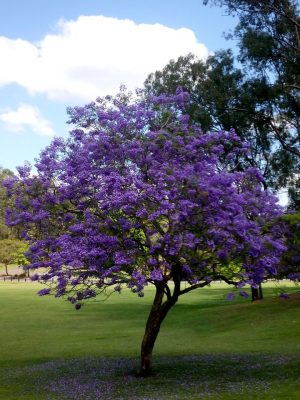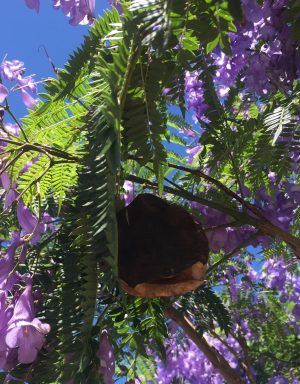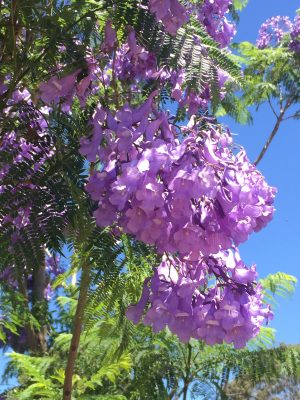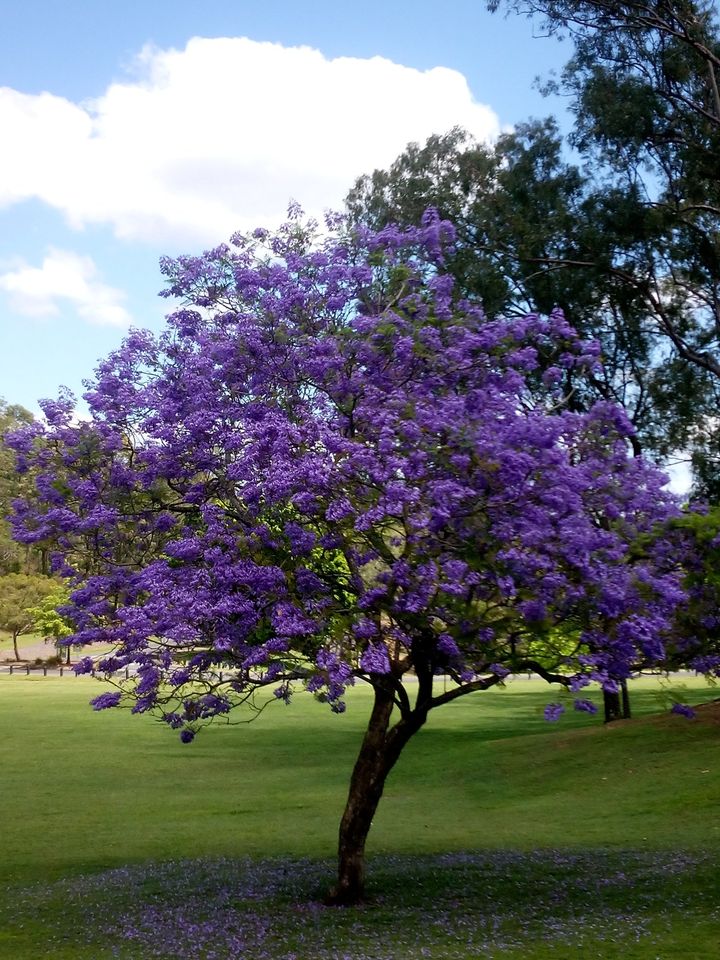

It is impossible not to notice the splashes of purple colour dotted throughout our parklands and home gardens at the moment. Jacaranda mimosifolia is certainly a beautiful tree providing wildlife habitat, full to dappled shade and a spectacular colour show.
Although Jacaranda trees thrive in tropical and warm temperate climates like Brazil, they can be grown in cooler areas such as ours and seem to tolerate light frosts quite well. Although smaller and slower growing here, I feel their characteristic purple flowers and carpeted understory are well worth the wait. Another great feature is that by December the tree is fully leaved, providing shade during the hottest part of the year; the perfect place for a picnic.
Jacarandas like a sunny position and well-drained, fertile soil as well as regular summer watering. Mulching around the roots with organic material such as compost, straw, bark, or mulched hay will help to retain your soil moisture over summer. Just remember that a thickness of no more than 50mm of mulch is recommended so that the rain can still get through. At Ramesa Farm here near Kingaroy we have welcomed some recent rain which has certainly helped bring life back into our dry garden. We are hoping that next year our own Jacaranda trees will be flowering.
While jacarandas can be grown successfully from seed, their flower colour may vary and they may take longer to flower. We can use seedlings which often pop up around the base of trees as a wonderful gift to other gardeners or to transplant them to increase your tree numbers.
When the number of fallen petals match those still suspended on the tree, I love the way the tree’s shadow is then coloured purple. It feels a bit like walking through an impressionist painting. I’m sure everyone has a jacaranda story, a favourite tree you return to year after year. The jacaranda may not always have been here in the South Burnett but for a few magical weeks each year it is a spectacular tree and abundantly ours. Happy Gardening Everyone.
Kind regards, Romaine.



